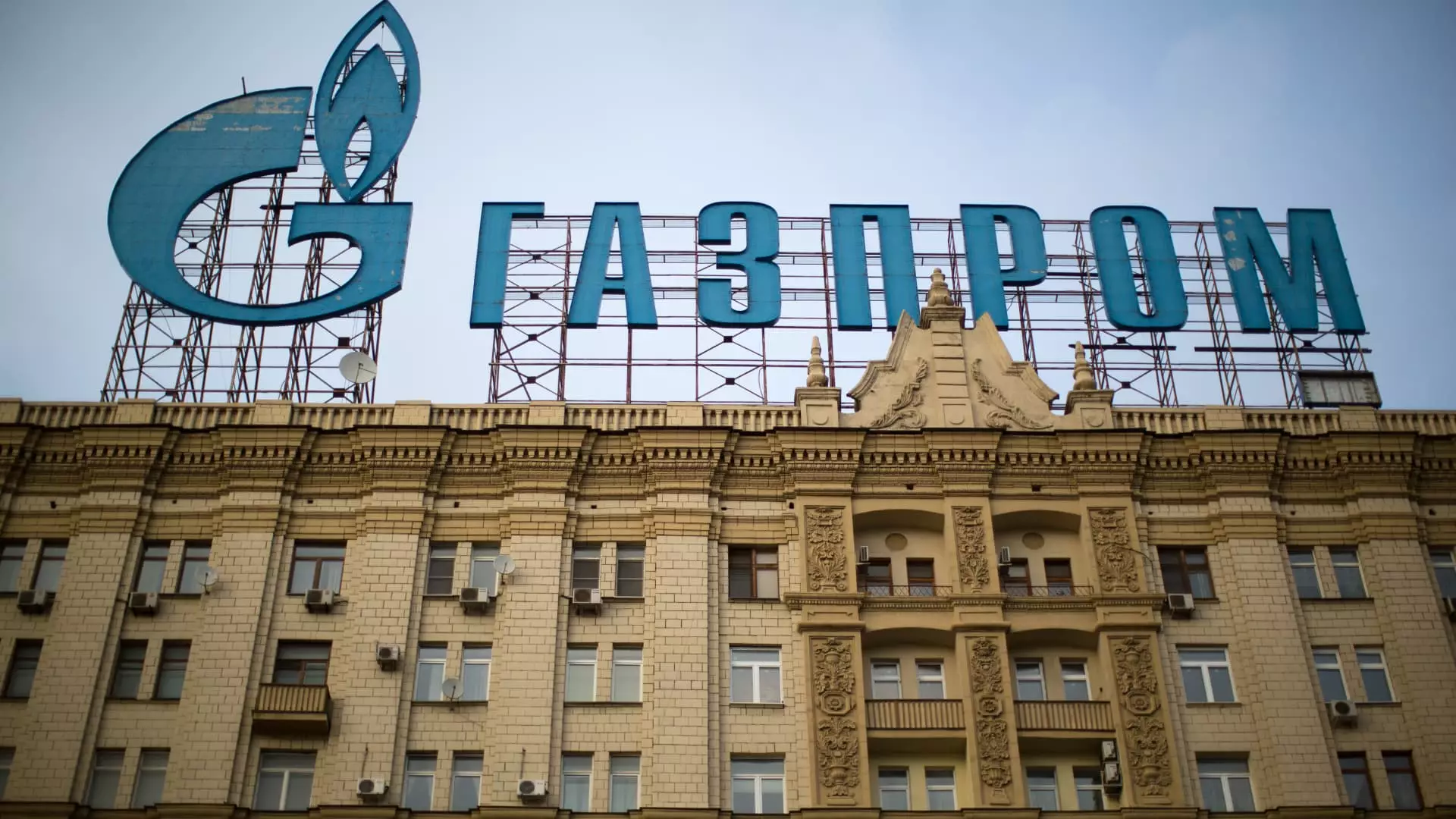In a significant escalation of tensions between Moldova and Russia, Gazprom, the state-owned Russian energy giant, announced plans to halt gas supplies to the Eastern European country starting January 1. The rationale behind this drastic measure revolves around allegations of unpaid debts by Moldova, positioning the nation under considerable energy strain as winter approaches. Moldova, a country striving to bolster its energy independence while navigating through political and economic pressures from the Kremlin, has characterized this interruption as a strategic maneuver aimed at exerting influence.
Moldova’s relationship with Russia has been tenuous, particularly following the country’s inclination towards the West. The ruling government in Chisinau continues to voice grievances about their energy vulnerabilities and claims that Gazprom’s financial demands lack legitimacy. Specifically, Gazprom asserts that Moldova owes approximately $709 million for past gas supplies, a figure that the Moldovan government vehemently disputes, arguing that a comprehensive audit places the actual debt at a mere $8.6 million. This dispute reflects a broader historical context wherein Moldova has been entangled in geopolitical rivalries, particularly with the backdrop of the ongoing conflict in Ukraine that further complicates regional energy dynamics.
The cessation of gas supplies is poised to have immediate repercussions for the Kuciurgan power plant, Moldova’s largest energy producer located in the unrecognized breakaway region of Transnistria. This facility is crucial not just for Transnistria but significantly influences the energy supply of Moldova itself. Following Gazprom’s announcement, Moldova’s government quickly mobilized, declaring a state of emergency in the energy sector to mitigate potential crises, mindful of the past winter when power outages occurred due to Russian military actions targeting Ukraine. Energy efficiency measures, including significant reductions in lighting and the operational schedules of energy-intensive businesses, are set to take effect in response to this imminent threat.
Prime Minister Dorin Recean has publicly reaffirmed that Moldova rejects Gazprom’s debt assertions, suggesting avenues for international legal recourse to defend the country’s energy interests. This approach underscores Moldova’s intention to navigate the geopolitical landscape while upholding its sovereignty against external pressures. Recean’s stance also hints at broader strategies to diversify energy sources, reducing vulnerability to single suppliers. Such efforts may include seeking alternative gas supplies and investing in renewable energy infrastructure.
Moldova’s predicament is emblematic of a wider European vulnerability regarding energy dependence on Russian supplies, which has been evident since the inception of the Ukraine conflict. Following Russia’s reduction of gas supplies to Europe in 2022, European nations scrambled to secure alternative resources, including liquefied natural gas (LNG) imports from the United States and Qatar. The challenges faced by Moldova, a relatively small nation, could resonate throughout Europe as countries wrestle with the implications of energy security amid ongoing geopolitical instability.
Amid these challenges, Moldova’s political landscape continues to evolve. The election of pro-Western President Maia Sandu and an affirmative referendum supporting EU aspirations indicate a strong public yearning for integration with the West, countering Russian influence. Nevertheless, the trajectory toward EU membership is fraught with hurdles as Moldova grapples not only with energy insecurity but also with internal challenges related to governance and economic reform.
As Moldova braces for the ramifications of Gazprom’s gas supply cut, the country stands at a crossroad in its energy policy and geopolitical orientations. The ongoing energy crisis not only tests Moldova’s resilience but highlights the broader shifts in energy politics within Europe. As the nation seeks to bolster its energy independence and navigate the complexities of international law, it is imperative for them to foster collaborative partnerships with Western allies while searching for innovative solutions to their energy challenges. The unfolding situation with Gazprom serves as a reminder of the precarious nature of energy dependence and the urgent need for strategic foresight in reinvigorating Moldova’s energy framework.

Leave a Reply